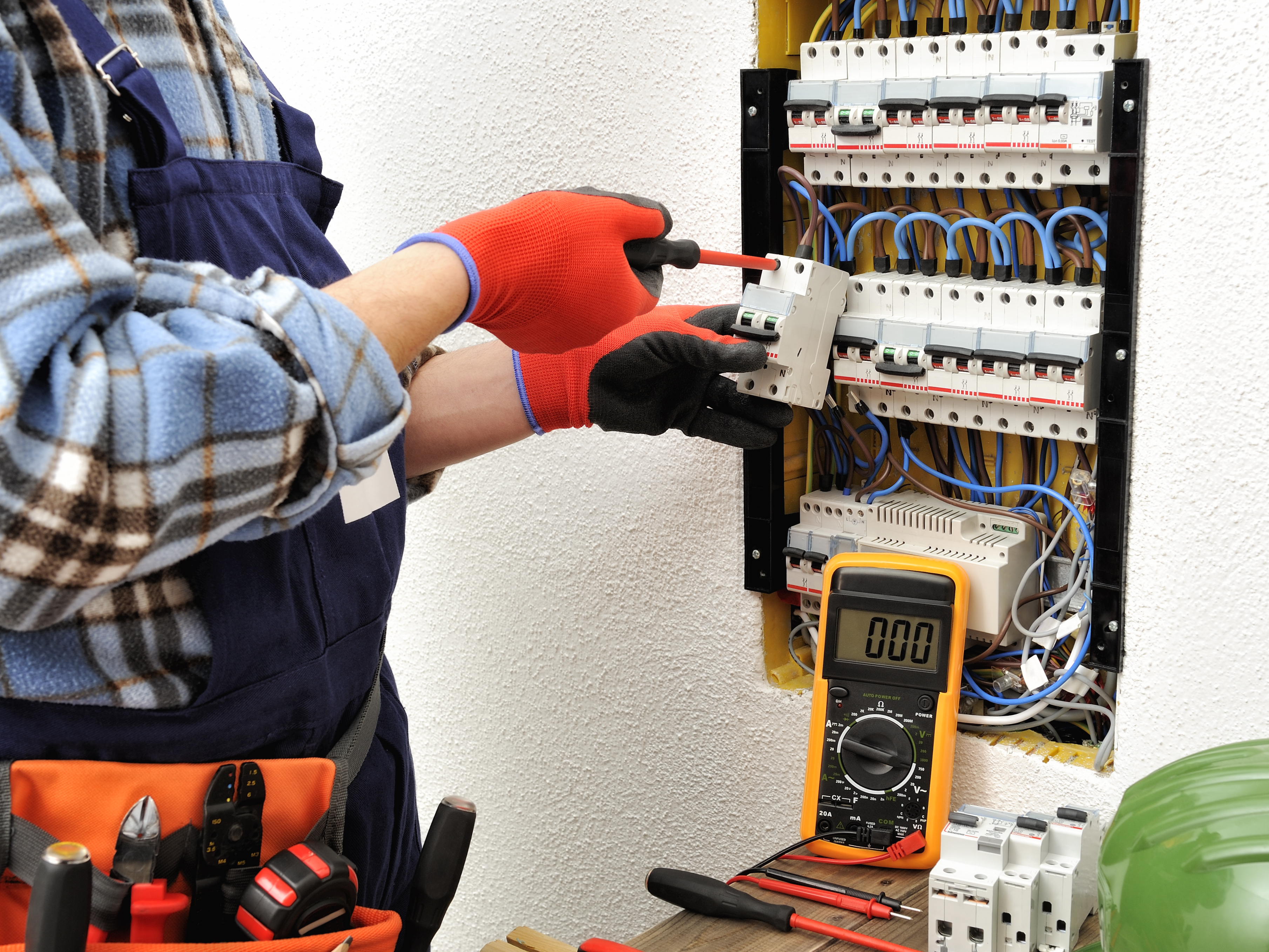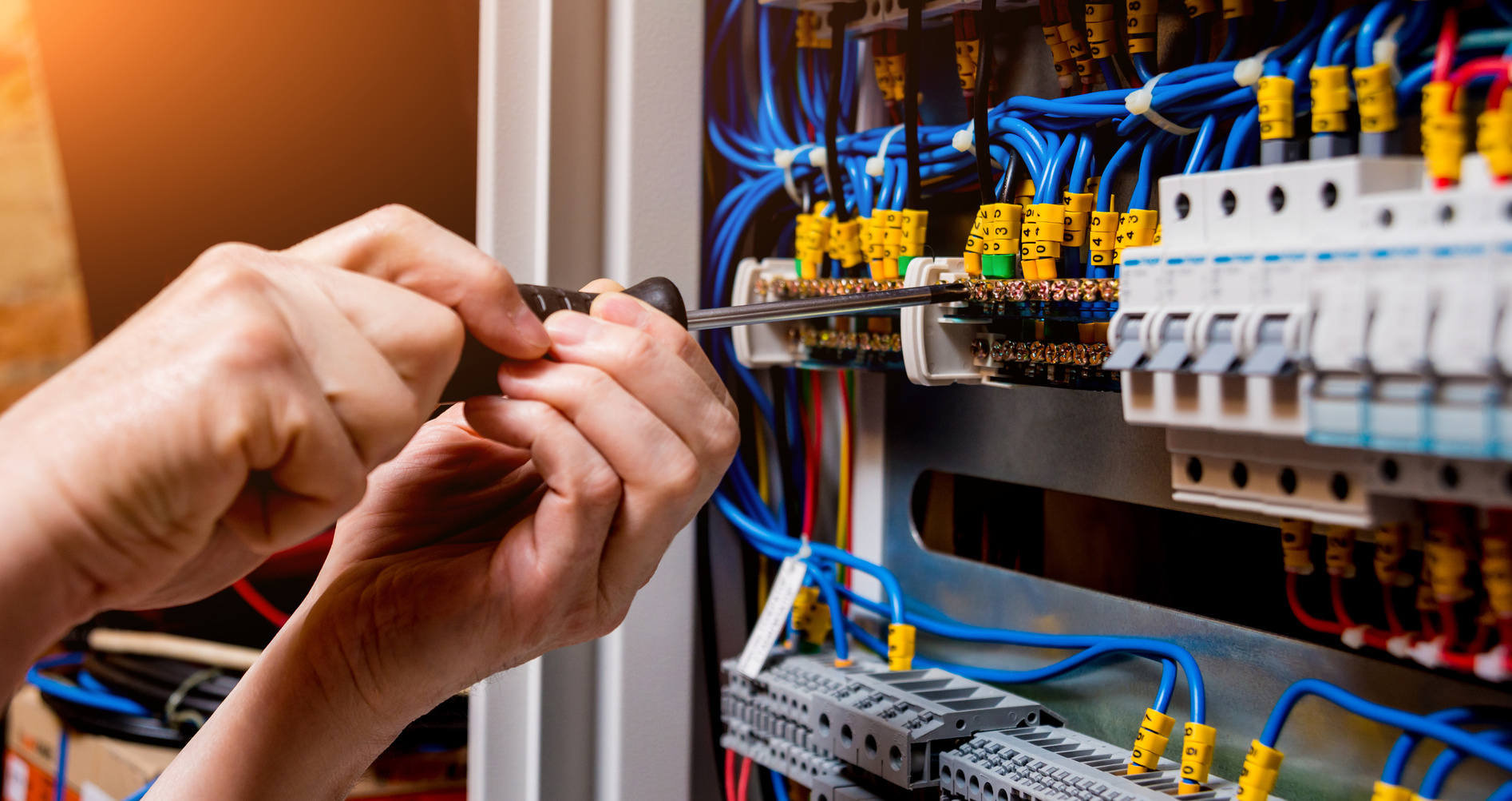Leading Industrial Electricians: Guaranteeing Safety and Performance in Complex Electrical Equipments
Leading Industrial Electricians: Guaranteeing Safety and Performance in Complex Electrical Equipments
Blog Article
The Comprehensive Duty of Industrial Electricians in Ensuring Reliable Power Distribution and Electrical Upkeep in Industrial Settings
The role of industrial electrical contractors prolongs much past standard electric jobs; they are integral to the stability and efficiency of industrial operations. Comprehending exactly how their experience not just safeguards operational continuity but likewise contributes to sustainability efforts increases important inquiries concerning the future landscape of electric upkeep in commercial setups.
Relevance of Industrial Electricians
In many industrial setups, the duty of electrical experts can not be overemphasized. These professionals are integral to the procedure and upkeep of electric systems, making certain that power circulation is trusted and efficient. Their knowledge not just supports the daily functioning of manufacturing procedures however likewise plays an important role in boosting total office security. Industrial electrical contractors possess specialized expertise of intricate electrical systems, including high-voltage devices and automated machinery, which are crucial for modern-day industrial operations.
Moreover, the demand for skilled electrical contractors remains to expand, driven by developments in modern technology and enhanced dependence on automated systems. As industries advance, the requirement for electrical contractors that can set up, repair, and preserve innovative electrical facilities becomes vital. Their payments prolong past mere installment; they are essential gamers in guaranteeing conformity with safety policies and sector standards, consequently minimizing dangers linked with electric failings.
Key Duties and Responsibilities
Industrial electrical contractors often participate in a selection of vital responsibilities that are essential to the smooth operation of power distribution systems. Among their key duties includes setting up, preserving, and fixing electric circuitry and tools in industrial settings. This includes making certain that electric systems abide by safety regulations and industry requirements to stop threats such as electric fires or tools failing.
Along with installation jobs, commercial electrical experts are in charge of troubleshooting and diagnosing electric concerns. They make use of specialized strategies and devices to identify faults in machinery and power circulation networks, making sure that any malfunctions are without delay dealt with to decrease downtime. industrial electrical contractors. Routine upkeep is another vital element of their function, where they carry out precautionary measures and routine evaluations to keep systems operating efficiently

Skills and Credentials Needed
Proficiency in electric systems is vital for industrial electrical experts, as it enables them to properly navigate the intricacies of power circulation (bre automation). A strong structure in electrical concept, including knowledge of circuits, voltage, present, and resistance, is essential. Industrial electrical experts need to have a detailed understanding of electric codes and policies to make certain compliance with industry criteria
In addition to technical understanding, navigate here practical skills are extremely important. Efficiency in troubleshooting and analytic permits electrical contractors to detect and solve problems efficiently, reducing downtime in commercial procedures. Familiarity with different devices and tools, such as multimeters, oscilloscopes, and power analyzers, is also required for reliable upkeep and repair work.
In addition, industrial electricians are commonly called for to have official education, generally culminating in an associate degree or conclusion of an instruction program. These programs give hands-on training and academic knowledge, gearing up electrical experts with the skills needed for the field.
Qualifications, such as those from the National Institute for Qualification in Design Technologies (NICET), can further enhance an electrician's certifications, demonstrating expertise and commitment to the profession. Overall, a combination of education and learning, sensible experience, and technological abilities is essential for success in this requiring duty.
Safety And Security Standards and Conformity
Compliance with safety standards is a fundamental facet of the commercial electrical contractor's function in power distribution. Industrial electrical contractors are tasked with adhering to a plethora of laws and standards developed by organizations such as the National Electrical Code (NEC) and Occupational Safety And Security and Health And Wellness Administration (OSHA) These standards make certain not just the risk-free operation of electric systems yet additionally the defense of workers and equipment.
To achieve conformity, electrical contractors should conduct normal assessments and maintenance of electrical systems, recognizing prospective risks and executing corrective measures. This consists of proper grounding, circuit defense, and using appropriate individual protective tools (PPE) By preserving a comprehensive understanding of both national and find out this here neighborhood codes, electrical experts can successfully reduce threats related to electric work.
In addition, industrial electrical experts play a vital role in training employees on safety techniques and emergency treatments. This education and learning promotes a society of safety within the work environment, lowering the possibility of crashes and ensuring that all workers recognize their obligations regarding electrical security.

Future Trends in Electric Maintenance
As modern technology remains to advance, the future of electrical upkeep in power distribution is progressively characterized by the combination of clever systems and predictive analytics. These developments make it possible for industrial electrical experts to relocate beyond standard responsive maintenance techniques, cultivating a proactive method that improves system integrity and efficiency.
One considerable pattern is the fostering of Net of Things (IoT) devices, which assist in real-time monitoring of electrical systems. This innovation permits for the collection of vast amounts of data, supplying understandings into equipment performance and prospective failing factors. By leveraging anticipating analytics, electricians can expect problems prior to they rise, reducing downtime and maintenance costs.
Furthermore, the execution of innovative automation technologies is transforming electrical upkeep. Automated diagnostic tools can rapidly determine mistakes and suggest rehabilitative activities, streamlining the repair process. This not only improves response times but additionally reduces human error.
Moreover, the growing focus on sustainability is driving the growth of energy-efficient options and renewable resource assimilation. As commercial markets progressively embrace greener techniques, electrical contractors will play a crucial function in maintaining these systems, making certain that power distribution straightens with environmental standards. Generally, the future of electrical upkeep promises improved integrity, sustainability, and efficiency.
Final Thought
In conclusion, industrial electrical contractors are crucial a fantastic read to the performance and security of commercial settings. The role of industrial electricians will continue to expand in significance.
The role of industrial electricians expands much past standard electric tasks; they are important to the stability and efficiency of industrial procedures (industrial electrical contractors). Industrial electrical experts have specialized understanding of complicated electrical systems, consisting of high-voltage tools and automated machinery, which are vital for contemporary industrial procedures
Additionally, industrial electricians work together with designers and other experts to develop and execute efficient electric systems customized to certain commercial demands.Effectiveness in electrical systems is crucial for industrial electricians, as it allows them to successfully navigate the intricacies of power distribution.In conclusion, commercial electricians are vital to the performance and safety of commercial atmospheres.
Report this page